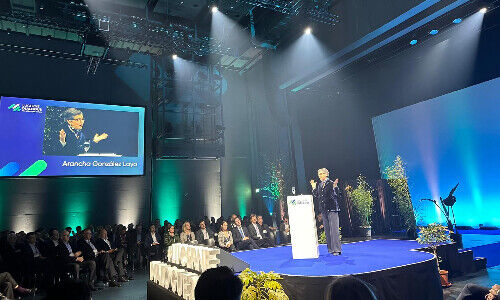«Lucerne Dialogue»: How Much Europe Can Switzerland Bear?
The «Lucerne Dialogue», a prestigious event held last week, has underscored critical issues facing Europe and Switzerland. The discussions highlighted why Europe risks devolving into a «tourist trap» and why Switzerland’s renowned ability to build consensus may be under threat. And why Singapore is a role model.
Is Europe truly at risk of becoming a «tourist trap,» as Dominik Isler asked during last week's «Lucerne Dialogue»? The CEO of the long-standing economic conference, formerly known as «Europa Forum,» referred to a recent article by Janan Ganesh.
Ganesh, writing in the «Financial Times» (article behind paywall), argued that the 21st century would be one where Europe no longer plays a shaping role. «The continent gets too much attention from the world to recognize its irrelevance,» he wrote.
US Appear Euphoric
This year’s «Lucerne Dialogue» could hardly have taken place at a better time, especially as the much-used term «point of inflection» seems more appropriate than ever. Since Donald Trump’s re-election, large parts of the US appear euphoric, while Europe sinks into disillusionment and internal conflict.
Meanwhile, the Middle East is driving economic growth despite warlike deadlocks, and Asia seems increasingly committed to amassing material prosperity.
Like «Kevin Home Alone»
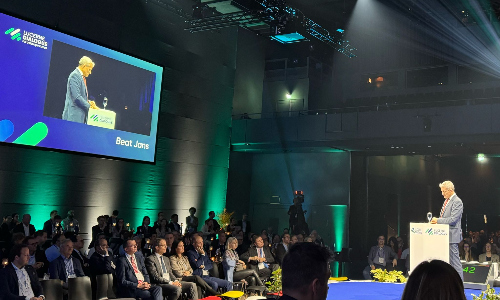
Federal Councilor Beat Jans (Image: finews.ch)
Then, there is Switzerland – divided as EU supporters and opponents clash more fiercely. At the same time, the Swiss Federal Council works to maintain and develop dialogue with neighboring countries while addressing domestic concerns to ensure no one feels overlooked. This balancing act was reflected in the opening speech by Federal Councilor Beat Jans in Lucerne.
The Justice Minister remarked that Switzerland’s approach to European politics often mirrors «Kevin Home Alone.» While the country celebrates its supposed independence, it watches Europe’s missteps with «Schadenfreude».
But this perspective is misleading, he emphasized. Switzerland is deeply intertwined with the European framework, making bilateral negotiations with the EU all the more essential.
Few New Ideas Initially
However, the new bilateral talks remain divisive, as demonstrated on the conference’s first evening when entrepreneurs Simon Michel and Marco Sieber debated.
Michel, a supporter of the bilateral agreements, emphasized their necessity for Switzerland's economic growth. In contrast, Sieber, a member of the EU-critical association «Kompass Schweiz,» warned of losing independence and increased bureaucracy in Brussels. The discussion adhered closely to familiar arguments, providing few constructive solutions.
Somehow Superficial
Similarly, Jamil Anderlini, editor-in-chief of «Politico Europe», offered an external view of Switzerland. However, his perspective brought little new to the table, as it paid insufficient attention to Switzerland’s unique characteristics and remained somehow superficial.
Make Europe Great Again
One recurring issue for Switzerland – and Europe – is the constant fixation on the US, regardless of who is in power. This was evident in a talk by Kevin Roberts, a former CEO in the consumer goods and advertising industries.
On the second day, Roberts questioned many so-called management «truths» but ultimately adopted Trump’s narrative. From Trump’s slogan MAGA (Make America Great Again), Roberts derived MEGA (Make Europe Great Again).
Best Presentation
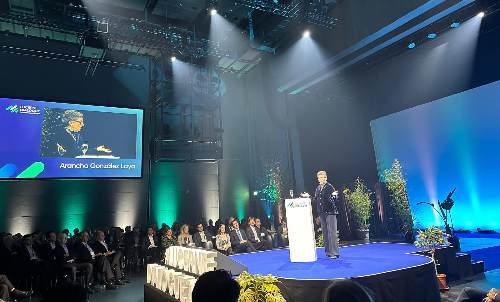
Arancha González Laya, economist and former minister (Image: finews.ch)
The direction Europe should take was instead eloquently outlined by Arancha González Laya, delivering perhaps the best presentation early on the second day. The former Spanish foreign minister urged attendees to view the current global instability as an opportunity to forge new partnerships.
«There is no de-globalization happening right now,» González stated emphatically. While acknowledging shifts in the «geography of trade,» she pointed out that global trade volumes have not decreased.
European Strength
González urged Europe, including Switzerland, to focus on greater independence amidst the systemic competition between the US and China. She advocated for taking charge of security matters and expanding economic ties with regions such as Asia and Latin America. Only through such measures could the «Old Continent» resist the pressures from superpowers and avoid being torn apart.
«Our European strength lies in unity,» González said, cautioning against distinguishing between friends and foes in international trade. «That’s not what international trade is about. It is based on economic logic,» she noted. González, now a professor in Paris, argued that Europe must leverage geopolitical shifts from a position of strength and independence.
Praise for Small States
González’s arguments suggested that a strong, self-assured, and independent Europe would also become more attractive for Switzerland, potentially easing bilateral negotiations under new conditions.
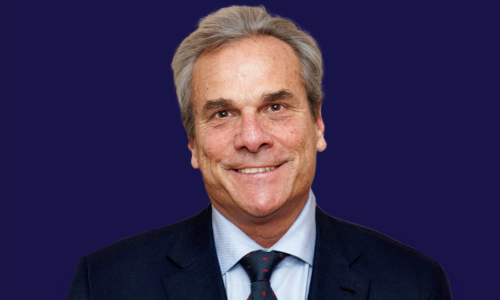
R. James Breiding, author and former banker (Image: LD)
This sentiment was echoed by R. James Breiding, a former banker turned entrepreneur and author of the book «Too Small to Fail: Why Some Small Nations Outperform Larger Ones».
Breiding highlighted the strengths of small states and their ability to influence geopolitics sustainably. He emphasized the trustworthiness of governments in small nations such as Denmark, Liechtenstein, Switzerland, and Singapore, underpinned by a tradition of «good offices» and well-educated (and -paid) civil servants.
Singapore as a Role Model
Singapore serves as a prime example of how a small state can achieve a remarkable balance between major powers like the US and China while maintaining unparalleled independence since its founding in 1965. Its well-paid civil service remains a cornerstone for avoiding corruption.
Ironically, Singapore’s founding father, Lee Kuan Yew, admired Switzerland greatly, using it as a model for his country. «Switzerland is the best-governed nation in the world,» he said in a 2007 in an interview with the daily newspaper «Neue Zürcher Zeitung». He praised Switzerland’s political stability, efficient government, and economic success, which inspired him.
Reimagined Europe
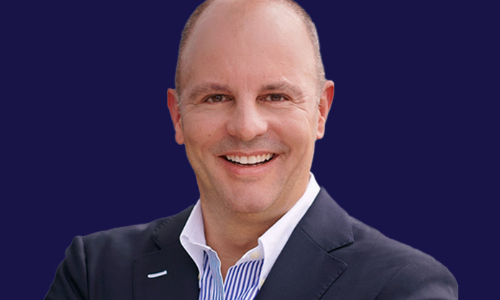
Marcel Stalder, president of the «Lucerne Dialogue» (Image: LD)
Despite these values, Switzerland struggles today within Europe. Marcel Stalder, president of the «Lucerne Dialogue,» attributes this to the decline of multilateralism: «We must recognize that we are at the end of multilateralism. We are dealing with a bipolar world where China and the US are the two poles. The question, therefore, is: Where does Europe position itself in the future?»
This underscores the idea that a reimagined Europe would be significantly more appealing to Switzerland. Stalder believes the key lies in Europe focusing not just on regulation but also on innovation: «We cannot leave innovation to the Americans while we focus solely on regulation. We need to move away from this – quickly.»

